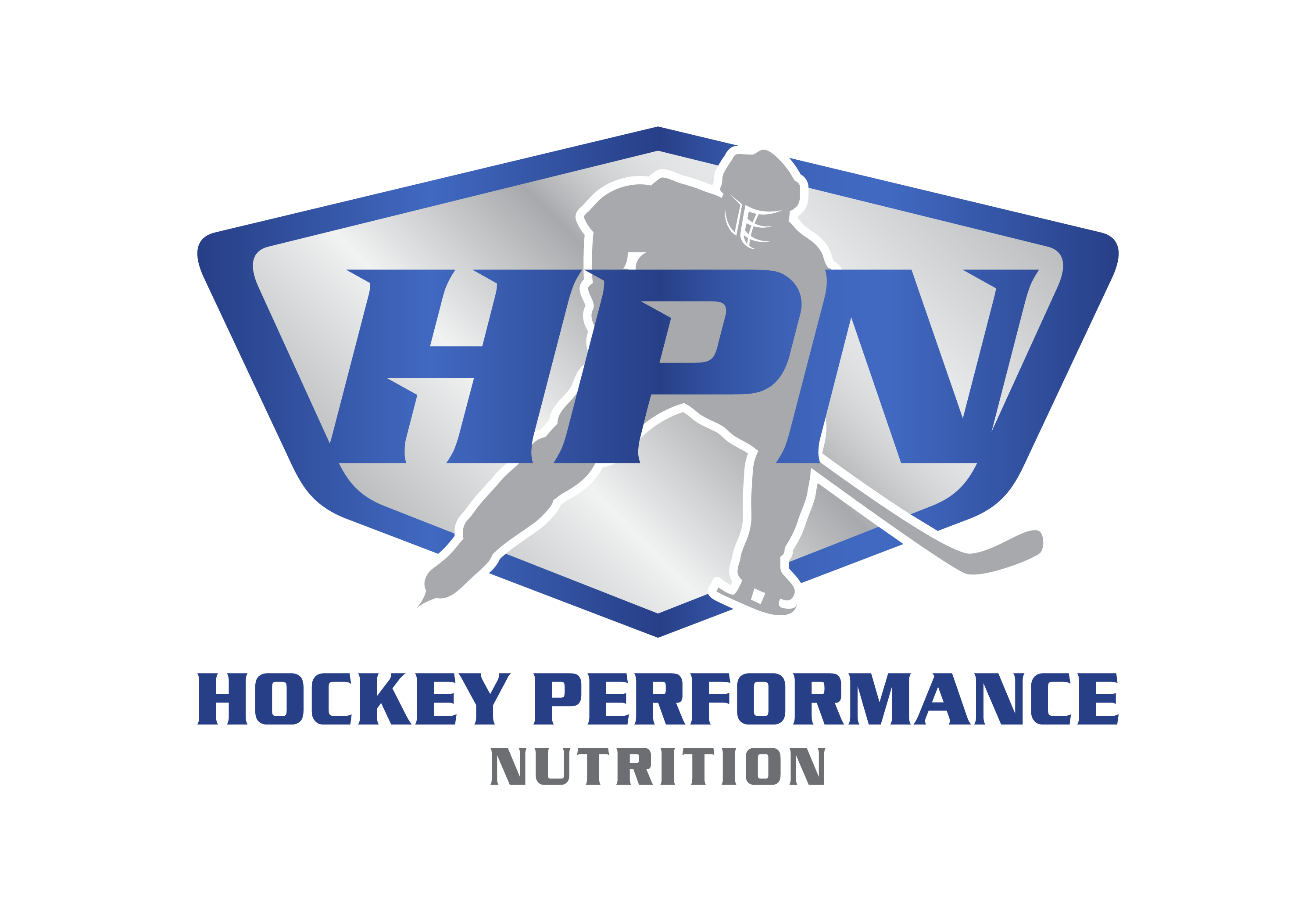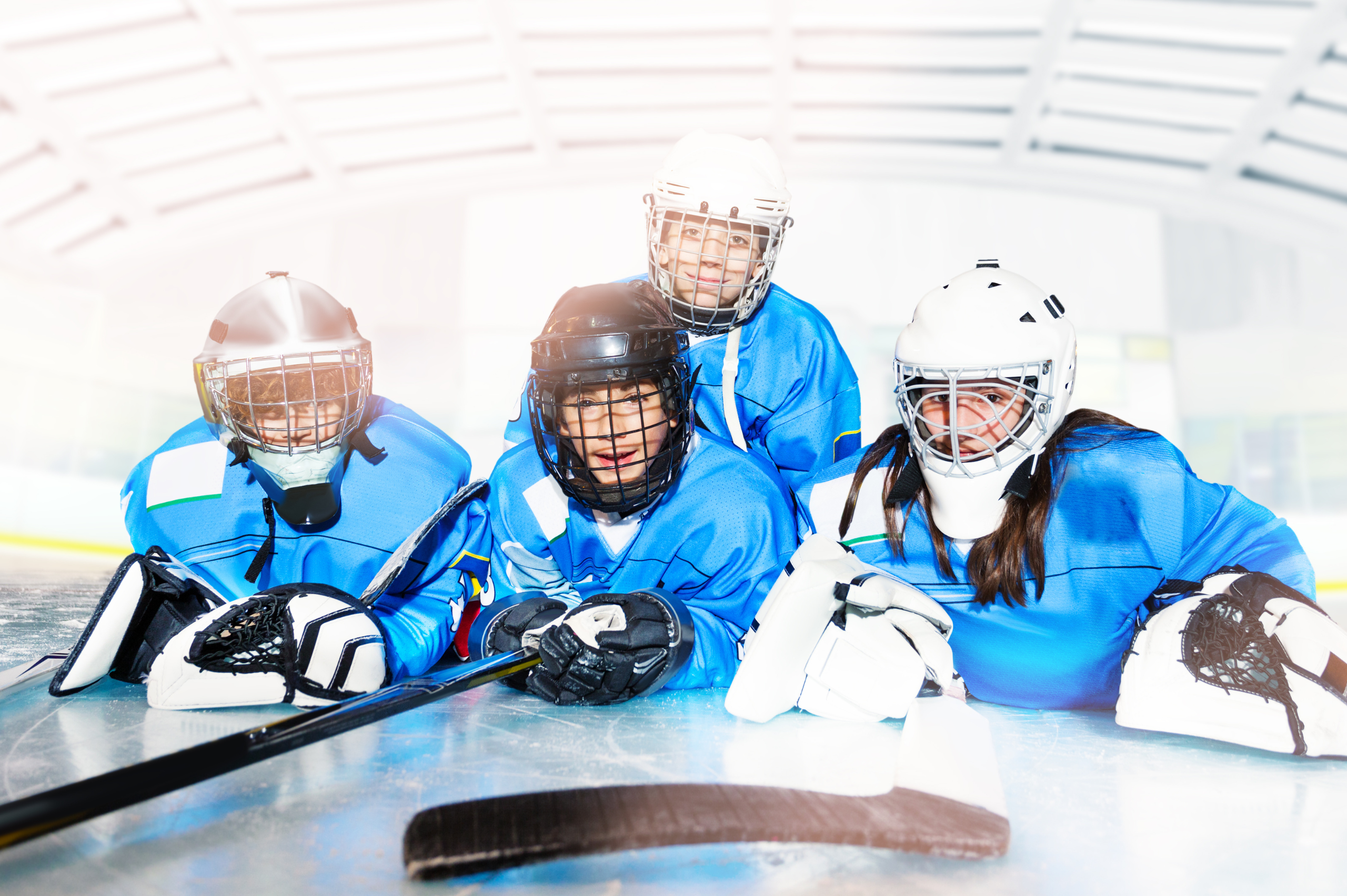“Coach, what should my kid eat before games so they have energy and play their best?”
If you’re a hockey parent, you’ve probably asked this exact question. And you’re not alone — it’s the #1 thing parents ask me at every tournament or showcase.
The truth? It’s not just about game day breakfast. At tournaments, kids are playing multiple games in a short window, usually after long travel days, hotel food, and little downtime. The real secret to consistent energy and performance isn’t just what your player eats before puck drop — it’s how well they recover and refuel between games.
Think of It as “Tournament Week” (Not Just Tournament Day)
Most parents focus on game day meals. But the foundation is built days before the first game. Starting 4–5 days out, nutrition, hydration, and sleep matter more than ever.
👉 Why this matters for parents: You control the groceries, the packing, and the snacks. The earlier you plan, the easier it is for your player to show up fueled and ready.
The Three Keys Parents Need to Focus On
1. Carbs = Fuel Tank
Carbohydrates are the primary energy source for hockey players — especially in a tournament setting where they’re playing multiple games in short windows. Every stride and shift depends on glycogen (stored carbs in the muscles).
Without enough carbs, players “run out of gas” faster, struggle with stamina in later games, and don’t recover as well between games. That’s why topping off glycogen stores in the days leading up to a tournament is critical.
👉 Many parents think of carbs as “bad” because of diet fads aimed at weight loss for adults. But for athletes, carbs are game fuel — without them, your player simply won’t have the same speed, endurance, or consistency from game to game.
Smart carbs for tournament week:
- Oatmeal for breakfasts
- Multi-grain bagel or sourdough toast as an easy morning option
- Rice or pasta for pre-game meals
- Fruit for quick, portable energy between games
- Sweet potatoes or whole grain wraps for dinners
⚠️ Avoid sugary pastries, candy, or sodas — they spike blood sugar, then crash energy mid-game.
2. Protein = Repair
Protein plays a major role at tournaments — but it’s mostly about recovery between games. Every time your player hits the ice, their muscles are broken down. Protein provides the amino acids needed to repair that damage and rebuild muscle so they can keep performing across multiple days.
👉 Where many parents go wrong is treating protein like the only thing that matters. Protein shakes and bars have their place, but they don’t provide the energy needed to actually skate and compete. Think of protein as what helps the body repair the damage from Game 1 so it’s ready to handle Game 2 — while carbs are what refuel the tank to provide the actual energy for that next game.
Protein staples for tournaments:
- Eggs and Greek yogurt for breakfast
- Chicken or turkey sandwiches between games
- Lean beef or salmon for dinner meals
- Portable options: jerky, string cheese, or trail mix
3. Hydration = Game Changer
Hydration isn’t optional — it’s the difference between skating strong in the 3rd period or running out of gas. Even a small drop in hydration slows reaction time, focus, and stamina. At tournaments, kids sweat more, play more often, and recover less — so water and electrolytes become as important as food.
Parent tip: Send your player to the rink already hydrated. Once they’re behind, it’s almost impossible to catch up during the day.
Hydration guide for tournaments:
- Daily Goal: Half your player’s bodyweight in ounces of water (minimum).
- Game Day: 16–20 oz water in the 2 hours before the first game.
- During Games: 6–12 oz every 15–20 minutes on the bench.
- Between Games: Add electrolytes (low-sugar mix or powder) to help replace what’s lost in sweat.
- Evening Reset: Extra water + balanced dinner to restore hydration before the next day.
⚠️ Avoid: Soda, energy drinks, and fruit juices — they add sugar but don’t rehydrate effectively.
Parent Checklist for Tournament Prep
- ✅ Sleep: 8–10 hours per night leading up
- ✅ Meals: Balanced plates (protein + carb + fruit/veggie)
- ✅ Snacks: Travel-friendly options (PB&J, trail mix, fruit, yogurt pouches)
- ✅ Hydration: Consistent all week, not just at the rink
Game Day Made Simple
Here’s a parent-friendly framework for meals and snacks around games:
- 2–3 hours before game → Balanced meal (lean protein + easy-to-digest carbs + fruit, minimal fat).
- Example: Chicken & rice with fruit.
- During game → Water + optional sports hydration mix (low sugar, electrolytes).
- Immediately after game → Quick recovery shake or chocolate milk.
- 1 hour after game → Balanced meal again (protein + carb + veggie).
⚠️ Avoid: heavy fast food, fried foods, energy drinks, or anything high in fat/sugar that slows digestion.
Early Morning Game Strategy
One of the toughest situations for parents is the dreaded 7:00am game. Most kids don’t feel hungry that early, and it’s tempting to grab a quick donut, pastry, or a drive-thru breakfast sandwich and sugary drink on the way to the rink. Unfortunately, those foods are low in nutrition, high in sugar, and won’t give your player the lasting energy they need — often leading to a crash before the game is over.
Parent Tips for Early Games
- Wake-up Hydration: Have your player drink 8–12 oz of water right when they wake up. It jump-starts digestion and helps shake off morning fatigue.
- Small, Easy-to-Digest Fuel: If they can’t stomach a full meal, go with a light but balanced snack.
- Examples: Greek yogurt with berries, banana with nut butter, or half a PB&J on whole wheat.
- Liquid Options Work Too: Smoothies or chocolate milk are great for players who can’t handle solid food early.
- Save the “bigger meal” for post-game: Right after the early morning game, prioritize a high-quality recovery meal (protein + carbs) so they can refuel for the rest of the day.
⚠️ Avoid: Donuts, pastries, muffins, sugary cereals, Starbucks-style frappes, energy drinks, or greasy breakfast sandwiches — these spike blood sugar and leave your player sluggish by the second period.
Pro Parent Tip
Plan meals and snacks before leaving home. Don’t count on concession stands or fast food between games. A cooler bag with prepared meals/snacks makes all the difference.
The Bottom Line for Parents
Tournament performance isn’t luck — it’s fueled. As a parent, you’re the biggest factor in whether your player shows up ready or runs out of gas by Day 2. By focusing on fuel, hydration, and recovery, you’re giving them the best chance to play their best every game.
Next Steps
If you want more hockey-specific nutrition strategies, check out my Hockey Performance Nutrition Playbook programs. They include meal plans, snack lists, and fueling guides designed just for youth hockey players.
And if you want a fully personalized approach built around your player’s unique needs, schedule a spot in my 1-on-1 Elite Coaching Program. Together, we’ll create a custom plan that takes the guesswork out of nutrition and gives your player the fuel to dominate on the ice.
About the Author
Terry Knealing is a Certified Strength and Conditioning Coach, Sports Performance Nutritionist, and USA Hockey Level 4 Coach with a passion for helping serious hockey players reach the next level.
As the founder of Hockey Performance Nutrition (HPN), Terry has worked with hundreds of athletes — from youth to pro — to create fueling strategies that maximize on-ice performance, speed recovery, and support long-term development.
With decades of coaching experience and a proven track record in elite sports performance, Terry’s programs go beyond generic advice. Every plan is built to fit the unique demands of hockey, the schedule of real hockey families, and the goals of each individual player.

